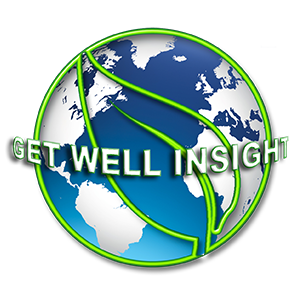About High and Low Blood Pressure
 Blood pressure is the term used to describe the pressure exerted on the arterial walls as blood flows through them. This pressure is at its highest when the heart contracts and pumps blood through the arteries and is called the systolic pressure.
Blood pressure is the term used to describe the pressure exerted on the arterial walls as blood flows through them. This pressure is at its highest when the heart contracts and pumps blood through the arteries and is called the systolic pressure.
Blood pressure is measured in millimetres of mercury (mm Hg) and a healthy systolic blood pressure reading is around 120 mm Hg. As the heart relaxes between two beats, the blood flows back through the veins into the heart and the pressure within the arteries falls. However, there is still some residual pressure in the arteries to prevent them from collapsing. This is called the diastolic pressure and it should measure around 80 mm Hg in a healthy individual.
Blood pressure fluctuates throughout the day, rising on physical exertion or during stressful moments for example, when the heart may pump harder. Age also influences blood pressure, as the walls of the blood vessels become hard and lose some of their elasticity as a person ages, leading to increases in systolic and diastolic blood pressure.
Some of the risk factors for high blood pressure include:
Essential hypertension
Some people have hypertension or high blood pressure with no known cause. This type of hypertension is called essential hypertension. In people with this condition, the smaller arteries of the body become narrower which means the heart has to pump harder to circulate blood to distant organs and limbs. This raises the blood pressure. Essential hypertension is also called primary hypertension and 5% of all cases of hypertension are essential hypertension.
Hypertension, especially essential hypertension often has a genetic basis and may run in families. People with first degree relatives who have the condition are at an increased risk of developing hypertension.
Hypertension may be caused by other diseases such as kidney disease, Cushing’s syndrome, Lupus, pheochromocytoma or adrenal tumors. Drugs may also cause hypertension. Some examples include pain relievers such as non-steroidal anti-inflammatory drugs (NSAIDs), corticosteroids, oral contraceptives, some antidepressant medications and drugs of abuse such as amphetamine, methamphetamine and cocaine.
Hypotension (Low Blood Pressure)
Hypotension (low blood pressure) without any symptoms or signs of disease usually does not require treatment. Still, in certain instances general lifestyle advice and treating underlying cause of the condition in necessary. Pharmacologic measures may be indicated in patients with a lack of appropriate response to conservative therapy for orthostatic hypotension.
Nonpharmacologic measures
Patients should limit alcohol intake and avoid carbohydrate-rich meals (in order to prevent postprandial hypotension). Adequate hydration must be ensured because fluids increase blood volume, which is important in treating hypotension. Medications that predispose to hypotension should be discontinued.
Older patients should consume at least two liters of fluid per day to balance expected urine losses during 24-hour period. If orthostatic symptoms are present, rapid water ingestion (i.e. half a liter in 4 minutes) is often used as a rescue measure to increase systolic blood pressure.
Sodium may be supplemented by adding extra salt to food or taking tablets of salt (a dietary supplement in the form of buffered sodium). All patients on such sodium supplementation should be monitored for edema, weight gain, or eventual heart problems.
An exercise program focused on improving conditioning and teaching physical maneuvers to avoid orthostatic hypotension has proven advantageous. Other useful maneuvers include isometric exercises of the arms, legs and abdominal muscles during positional changes or protracted standing.


